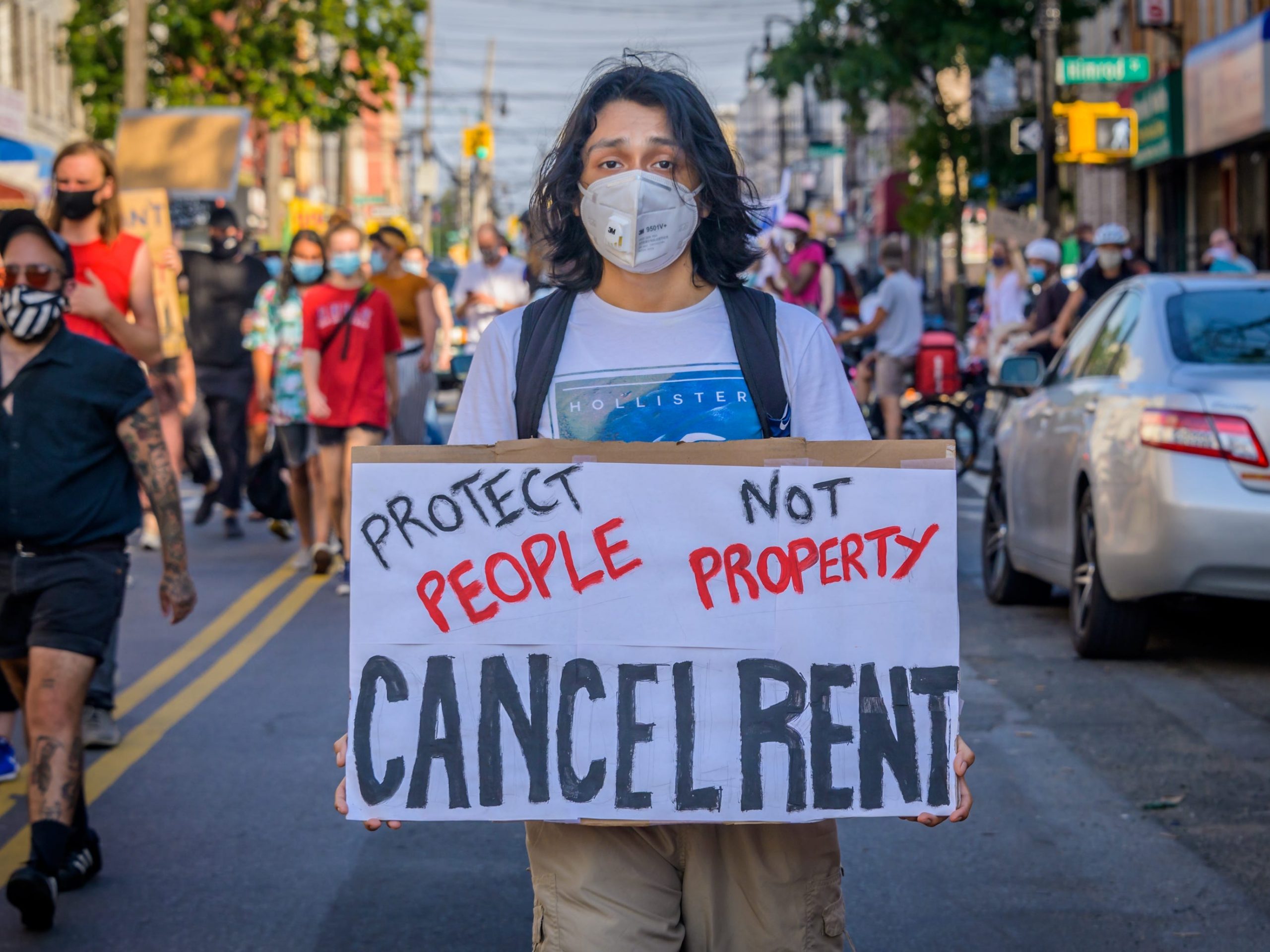
Erik McGregor/LightRocket via Getty Images
- On Monday, Moody’s Analytics found millions of Americans are, on average, nearly $6,000 behind on rent payments, according to a Washington Post report.
- The figure paints a bleak picture for what could happen come January 1, when eviction moratoriums expire and billions in back rent are due.
- Some estimates — like one from advisory firm Stout — puts as many as 20.1 million tenants in the US at risk of eviction. That’s equivalent to the population of the state of Florida.
- Moody’s chief economist said only federal relief can prevent Americans from losing their homes “in the dead of winter during a pandemic,” but Congress has yet to agree on another stimulus bill and President-elect Joe Biden doesn’t take office until January 20.
- Visit Business Insider’s homepage for more stories.
Millions of Americans are currently out of work and thousands of dollars behind on rent.
Meanwhile, eviction moratoriums due to the coronavirus pandemic are expected to expire at the end of this month, just as some unemployment benefits cease. A startling number of families will fear eviction heading into the holidays, with little hope of relief on the horizon.
Moody’s Analytics found that nearly 12 million renters will owe an average of $5,850 in back rent and utilities by January, according to the Washington Post. Moody’s chief economist, Mark Zandi, previously estimated that tenants nationwide could owe a total of $70 billion in back rent by the new year, leaving landlords struggling to pay mortgages, property taxes, and more.
Evictions loom, and the overall outlook is bleak. One November survey by the US Census Bureau found that roughly 5.8 million Americans – roughly the population size of Singapore – actively expect to face eviction in the coming months due to inability to pay their back rent.
SEE ALSO: How President-elect Joe Biden has promised to transform affordable housing and homeownership
Other estimates are harsher. Investment bank and advisory firm Stout estimated that up to 8.4 million households of renters - a total of 20.1 million individuals - could see eviction filings by January. That roughly amounts to the population of the entire state of Florida. The Aspen Institute puts the number of people at risk of eviction even higher, somewhere between 30 and 40 million.
Eviction moratoriums that currently protect tenants unable to pay rent are set to expire on January 1, immediately after unemployment benefits keeping 12 million Americans afloat expire on December 26. Congressional lawmakers are currently working on a bipartisan $908 billion stimulus bill, which would include $300 in weekly federal unemployment starting in January and running through April, along with $25 billion in rent relief. But some experts say the amount isn't enough.
Plus, the approval process for the bill, which could at least provide some relief, is at a standstill. Senate Majority Leader Mitch McConnell refused to back the $908 billion proposal on Monday, even as coronavirus cases soar and the pandemic continues to stunt economic recovery.
"The economic damage created by this pandemic will be many times more severe if we lose faith that the government has our back," Zandi told the Post. He later told Reuters, "The reality on the ground is going to be very dark, with people losing homes in the dead of winter during a pandemic."
President-elect Joe Biden has previously said he will sign executive orders to extend eviction moratoriums and even voiced support for rent forgiveness - but he does not take office until January 20.










